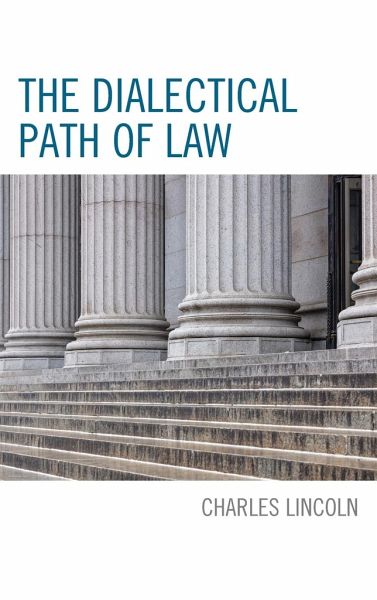
Dialectical Path of Law
Versandkostenfrei!
Versandfertig in 1-2 Wochen
130,99 €
inkl. MwSt.
Weitere Ausgaben:

PAYBACK Punkte
65 °P sammeln!
The Dialectical Path of Law discusses the origin of law leading to the development of advanced corporate law intertwined with the formation of technical tax rules. Lincoln explores the recent developments of the OECD and United States tax rules within a hardly discussed context in legal academia - the Hegelian dialectic.














